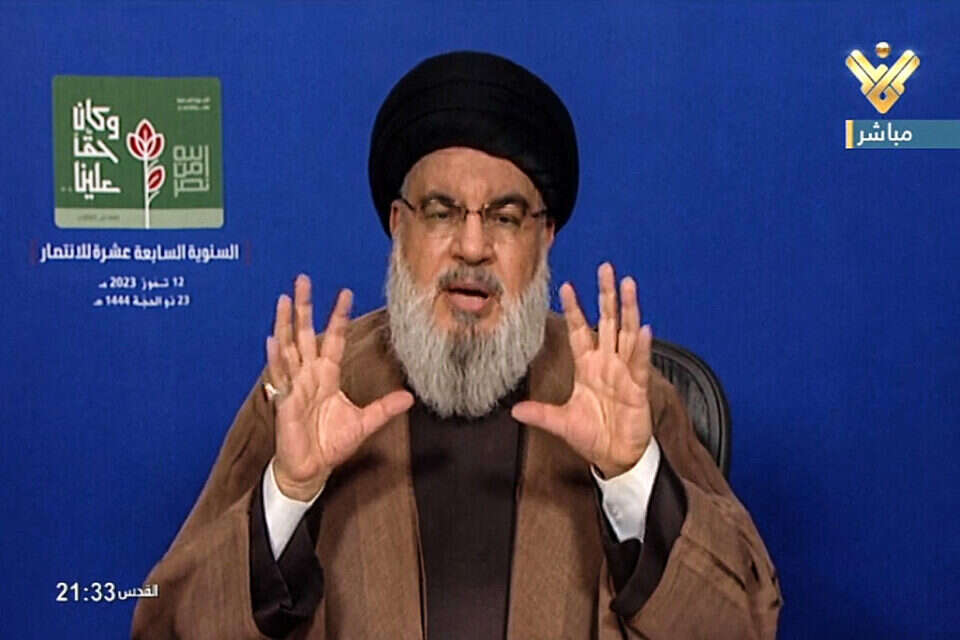The assassination of Salah Arouri is an impressive operational achievement in wartime, which also significantly increases the danger of expanding the campaign between Israel and Hezbollah.
Another angle on the scene of the assassination in Beirut // Arab networks
Arouri was a significant figure in Hamas, secondary only to the trio running the organization in Gaza (Yahya Sinwar, Mohammed Deif and Marwan Issa). His past was full of sending terrorists to terrorist acts, even though he never carried out attacks himself. He spent years in administrative detention in Israel, and was eventually released as part of an agreement under which he left the Occupied Territories abroad. He lived first in Damascus and later in Turkey, from where he operated squads that carried out terrorist attacks in Judea and Samaria, including the attack in which the three youths were abducted and murdered in the summer of 2014.
Following Israeli pressure, and also fearing assassination, he left Turkey and moved to Lebanon, where he received Hezbollah protection and became very close to the heads of the Iranian Quds Force. In addition to his orders to carry out terrorist attacks (and the funding he transferred to squads on the ground), he established a terrorist network in the refugee camps that carried out several rocket launches and attempts to infiltrate Israel, including in the current war.
The scene of the killing of Salah al-Arouri in Beirut, photo: AP
Israeli officials have stated more than once in the past that Arouri is mortal. There were quite a few reasons to assassinate him even then, but after the October 7 attacks he became a target for assassination – according to the open statements of the Israeli political-security leadership – alongside his friends in the Hamas leadership in Gaza and abroad. In the past, Nasrallah warned that the assassination of Arouri or other senior officials would lead to a direct response from Hezbollah.
Nasrallah now has to make the most complex decision he has faced in the current campaign: Does the assassination carried out in the heart of the Shiite stronghold in Beirut justify expanding the circle of fighting to the point of firing into the center of the country, under the equation he previously determined that Beirut is the law of Tel Aviv, knowing that this could lead to a broad campaign, which all signs indicate that Hezbollah is not interested in? On the other hand, refraining from such fire or settling for a symbolic response will show that Nasrallah fears Israel, has no interest in uniting fronts, leaving Hamas alone in the battle.
Smoke over the northern border near Lebanon, photo: AFP
Israel did not claim responsibility for the assassination, but no one has any doubt as to who was responsible. From this, we can also address the dilemma: Arouri's assassination has significance not only in the context of revenge and harm to the Hamas leadership, but also in the broader circles of restoring deterrence. Carrying out such an assassination in wartime requires excellent intelligence and high execution capabilities in problematic and dangerous targets, which exist only in a few security services in the world, and which there is a constant fear of losing if they are not activated.
On the other hand, Israel is also not currently interested in a large-scale campaign in Lebanon, at least not as long as the campaign in Gaza is being waged at a high intensity. Its elimination significantly increases the chances that this will happen and that all the arenas will unite, including Judea and Samaria, where Arouri has extensive ties (mainly in the Judea sector).
They are not interested in escalation in the north during the ground operation in the Gaza Strip. Destruction in Gaza, Photo: AFP
The Israeli challenge now will be to prevent this, leaving Hezbollah deterred. If that happens, Israel will be able to breathe some air for the first time since Black Saturday, knowing that Hamas has started paying the bill and hopefully it will be completed in the very near future.
Wrong? We'll fix it! If you find a mistake in the article, please share with us

